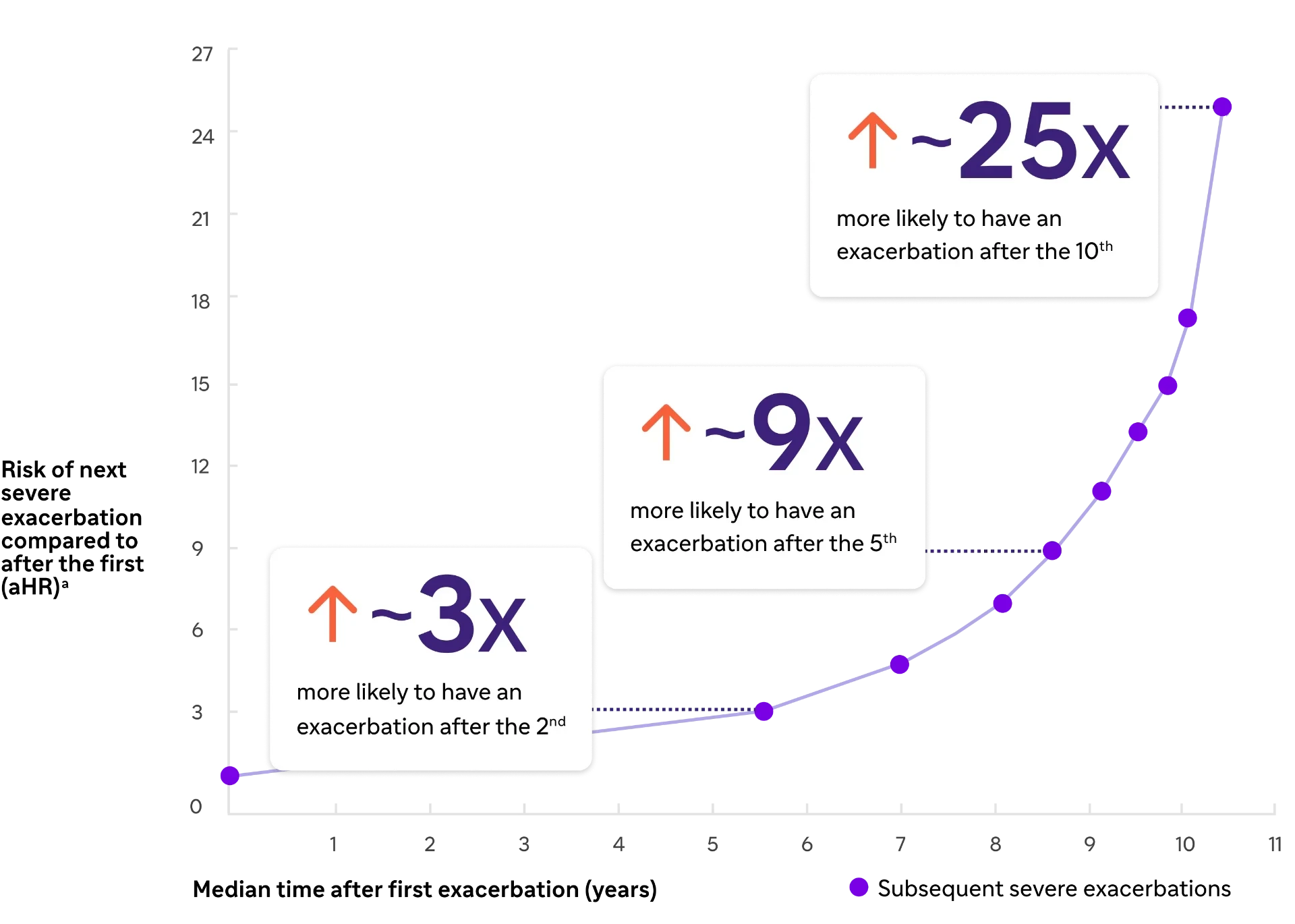The Impact of Exacerbations in COPD
COPD Exacerbation risk has been shown to accelerate after each exacerbation2
*Severe exacerbations were defined as those which resulted in hospitalization with a primary discharge diagnosis of COPD2
Despite triple inhaled therapyb, the current standard of care, many patients remain symptomatic as defined by persistent symptoms and exacerbations.1
COPD Exacerbations may lead to accelerated lung function decline3,c
- Loss of lung function nearly doubled3
- Irreversible lung function decline may occur after only one COPD exacerbation3
aAdjusted for age, sex, calendar time, and the modified Chronic Disease Score.2
bOr double inhaled therapy if ICS is contraindicated.1
cFEV1 decline after a single moderate-to-severe exacerbation. Based on a retrospective analysis of data from 586 patients with moderate-to-severe COPD.3
aHR, adjusted hazard ratio; COPD, chronic obstructive pulmonary disease; FEV1, forced expiratory volume in 1 second; QoL, quality of life
* Type 2 inflammation defined as elevated biomarker in COPD (Blood EOS ≥300 cells/μL or ≥2%, or Sputum EOS ≥ 3%)
References
-
Halpin DMG, Dransfield MT, Han MK, et al. The effect of exacerbation history on outcomes in the IMPACT trial. Eur Respir J. 2020;55:1901921. doi:10.1183/13993003.01921-2019.
-
Suissa S, Dell’Anniello S, Ernst P. Long-term natural history of chronic obstructive pulmonary disease: severe exacerbations and mortality. Thorax. 2012;67(11):957-963.
-
Halpin DMG, Decramer M, Celli BR, Mueller A, Metzdorf N, Tashkin DP. Effect of a single exacerbation on decline in lung function in COPD. Respir Med. 2017;128:85-91.








